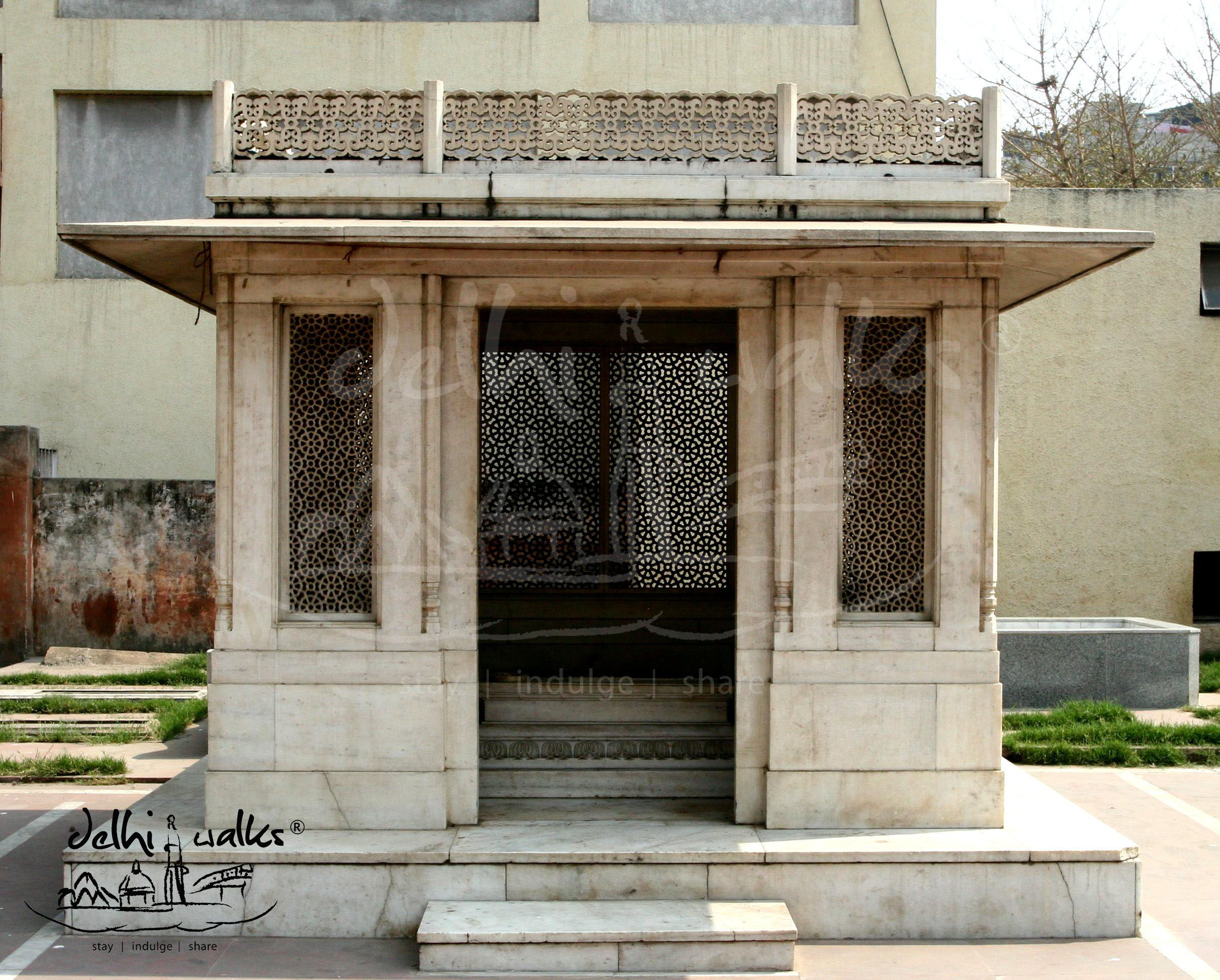The Tomb of Mirza Ghalib is situated towards the northern end of the Chausath Khamba enclosures and very close to Hazrat Nizamuddin’s Shrine. Mirza Ghalib was a renowned Urdu as well as Persian Poet of his time who was born in 1797. He was a poet in the Imperial Courts of the Mughal Empire and a close friend of Emperor Bahadur Shah Zafar. He was also the Urdu and Persian Teacher of Bahadur Shah II. He is popularly known as the ‘Shakespeare of Urdu’ who wrote numerous Ghazals (Passionate and Musical Poems of Love normally written in the Urdu Language) and also famous for his quote which reads that Delhi is the Soul of the World.
Mirza Ghalib’s Tomb is small compared to the numerous royal tombs in Delhi which has been deemed as a protected monument by the Archaeological Survey of India. It is dressed with a structure made of marble and sits within a small courtyard enclosure which is kept under key and lock. The small Tomb area is also dotted with several other graves of persons unknown.
Mirza Ghalib was born in Kala Mahal, Agra into a family descended from Aibak Turks who moved to Samarkand (now in Uzbekistan) after the downfall of the Seljuk kings. His paternal grandfather, Mirza Qoqan Baig Khan, was a Saljuq Turk who had immigrated to India from Samarkand during the reign of Ahmad Shah (1748–54). He worked at Lahore, Delhi and Jaipur, was awarded the subdistrict of Pahasu (Bulandshahr, UP) and finally settled in Agra, UP, India. He had four sons and three daughters. Mirza Abdullah Baig Khan and Mirza Nasrullah Baig Khan were two of his sons.
In 1850, Emperor Bahadur Shah Zafar II bestowed upon Mirza Ghalib the title of “Dabir-ul-Mulk”. The Emperor also added to it the additional title of “Najm-ud-daula”. The conferment of these titles was symbolic of Mirza Ghalib’s incorporation into the nobility of Delhi. He also received the title of ‘Mirza Nosha’ from the Emperor, thus adding Mirza as his first name. He was also an important courtier of the royal court of the Emperor. As the Emperor was himself a poet, Mirza Ghalib was appointed as his poet tutor in 1854. He was also appointed as tutor of Prince Fakhr-ud Din Mirza, eldest son of Bahadur Shah II, (d. 10 July 1856). He was also appointed by the Emperor as the royal historian of Mughal Court.



